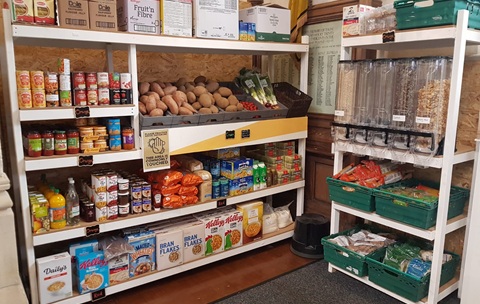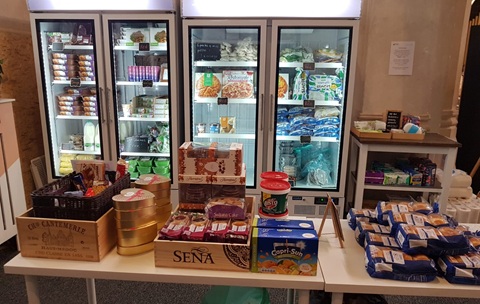
Improving the quality of supplies at food pantries as their demand continues to grow is the focus of a new project led by the University of Southampton.
Working with local councils and food aid services, the three-year project will aim to ensure food is distributed to food pantries more fairly and with less waste. Researchers will also consult food pantry users on how to improve the service.
The number of households needing to call on food aid has risen sharply in the last few years, from 2.5 million people in 'food insecure' households in the UK in 2021/22 to 7.2 million - 11 per cent of all households - in 2022/23.
Demand on food pantries has significantly increased in the South. Data from the Southampton Food Aid Forum, which includes food pantries in the city, shows that the volume of food redistributed to those needing food aid rose sharply from 12,319 kgs in 2022 to 32,964 kgs in 2024.
University researchers are working with Hampshire County Council, Southampton City Council, New Forest District Council and the Isle of Wight Council, plus 10 different food aid services in the region, to improve the food pantries in Southampton, the Isle of Wight and the New Forest.
Food pantries differ from food banks. Food banks are referral only, whereas food pantries are self-referral for those who need it and, for a small sum of about £5, people can choose a quantity of heavily discounted food.
Project lead Dianna Smith , Professor in Geography at the University of Southampton, said: "Food pantries are having to buy more and more supplies in because there is more demand than can be met through the surplus food redistribution system. But access to food pantries and the quality of the food they offer is a postcode lottery. Some have lots of fresh and nutritious food, whilst others less so due to storage or other constraints."

The research project, which has just kicked off, is split into three parts:
- People who use food pantries and food aid will be recruited as 'community researchers' to ask other users how the food pantries could be improved.
- Closer working between food pantries and local growers and retailers will be introduced, to improve sustainability by ensuring food stays local where possible, rather than being moving around the country.
- An online platform will be created for each district, bringing together food banks, surplus food suppliers such as farmers or shops, and food aid organisations, so they can work cohesively to ensure food distribution is equitable and less waste is created.
Professor Smith added: "Food pantries are a lifeline for lots of people. This project is about trying to make food aid as good and as available as possible for those who need it, whilst also addressing environmental and sustainability challenges, such as ensuring less waste and less food miles."
Steve Johns from Southampton City Mission Marketplace , which runs food pantries in the city, commented: "There is a sense of belonging, through the membership with the Marketplace. There is another aspect to this, beyond food; it is a place of community and friendship as well as providing food."
The initiative is one of six new projects kicking off across the UK to tackle food inequality, all funded by UK Research and Innovation (UKRI) as part of its work to create opportunities and improve outcomes.
The others include a mobile greengrocer for social housing in Liverpool, ensuring free school meals in Wales are nutritious, and a pilot of two subsidised restaurants in Dundee and Nottingham for deprived households with children.
Professor Alison Park, Head of UKRI's creating opportunities, improving outcomes theme, said: "Everyone should have access to healthy, nutritious food. But the number of food insecure households across the UK is increasing, and we must establish why this is and what interventions can be successful.
"These innovative projects will go a long way in determining what could be the right course of action and tackle health inequalities for good."






